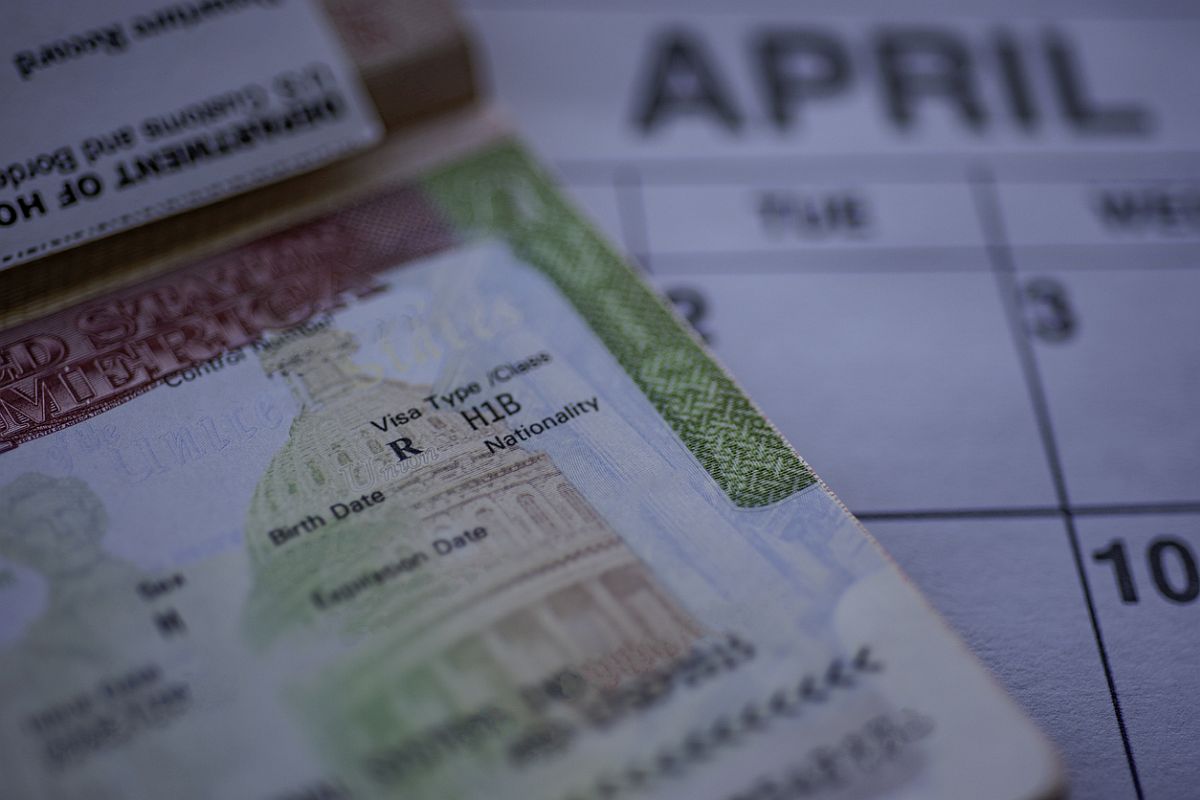US shoots down Palestine’s bid for full UN membership
An isolated US has shot down Palestine's bid to get full UN membership using its veto at the Security Council undermining the keystone of a two-nation solution to the Israel-Palestine conflict.
‘The regulation has caused immediate and unnecessary harm in every corner of the economy, including academic institutions, non-profits, hospitals, start-ups and small businesses.’

(Photo: iStock)
Seventeen individuals and organisations, including universities and businesses, have filed a lawsuit against the US Department of Labor challenging its recent Interim Final Rule on wages related to H-1B visas.
The lawsuit filed in the US District Court for the District of Columbia on Monday alleged that the poorly-drafted and improperly-issued rule did not comply with the procedural rules for rule-making and is substantively arbitrary, incorrect and irrational.
The H-1B visa is a non-immigrant visa that allows US companies to employ foreign workers in speciality occupations that require theoretical or technical expertise. It is most sought-after among Indian IT professionals.
Advertisement
“The increase to the prevailing wages will manifestly not benefit US economic growth or any workers; study after study has shown that H-1B visa holders create American jobs,” Jesse Bless, director of federal litigation at the American Immigration Lawyers Association (AILA), claimed.
The regulation, he said, has caused immediate and unnecessary harm in every corner of the economy, including academic institutions, non-profits, hospitals, start-ups and small businesses.
“Frankly, the last thing we need during a (COVID-19) pandemic and economic turmoil is a rule based on a false and incorrect understanding of the market and American workforce. This will impede our economic recovery, not enhance it,” Bless said.
Early this month, the Department of Labor published a rule to appropriately identify wage levels for H-1B holders and other foreign labour programmes, which according to the White House will improve the quality of H-1B workers and better reflect wages paid to similarly employed workers in the US.
The rule will limit an employer’s ability to replace workers with cheap foreign labour and help ensure wages are not suppressed by the presence of low-cost foreign workers, the White House argued.
Among those who have filed the lawsuit are Purdue University, University of Michigan, University of Denver, Chapman University, Bard College, International Institute of New England, Information Technology Industry Council, Arizona State University, Scripps College, Northern Arizona University, Indiana University, Study Mississippi, Dentists for America, Physicians for American Healthcare and Hodges Bonded Warehouse.
Jeff Joseph, Senior Partner of Joseph and Hall, in a statement alleged that dealing with the Department of Labor often feels like “The Hunger Games”.
“Everyone is required to play the game, but no one knows the rules and the rules are constantly changing. This is not a game. The fact that the rule was made effective without thinking about the destructive impact it would have on industries and the economy illustrates how out of touch this administration is regarding the symbiotic relationship between legal immigration and the economy,” he said.
The days when the federal government blatantly ignores the law in its rule-making are over, said Charles Kuck, managing partner of Kuck Baxter Immigration.
US universities, employers, and healthcare systems can no longer stand by and watch while the US immigration system is dismantled by a nativist administration and in contravention of federal law, he said.
Aside from the blatantly unlawful way, the Department of Labor dropped this rule on the economy, its basic premise is also wholly incorrect, alleged Greg Siskind, founding partner of Siskind Susser.
“The workers impacted are in occupations with extraordinarily low unemployment. And as we show in the complaint, these outstanding immigrants are doing critical work benefiting everyday Americans, whether it is providing critical research to cure disease, making our country globally competitive, providing medical and dental care to rural Americans, or caring for our country’s senior citizens,” he said.
Advertisement